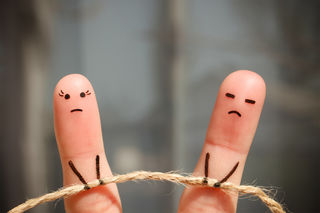I have to apologize. I was supposed to get this review posted last week and was on track to do just that, then everything got overwhelming. So, a little late, but hopefully still doing it the justice it deserves, I present to you The Compassionate Achiever: How Helping Others Fuels Success by Christopher L. Kukk.
First line: “My wife, Elly, and I were on an elevated train traveling home after spending the day in Boston, when a loud blast fractured the silence of the car.”
 Using a slew of science combined with a hearty dose of anecdotes and topped with a smidgen of analytical thinking, Dr. Christopher Kukk illustrates how the old adage, “look out for number one” is not really the secret to success. Instead, individuals need to be compassionate achievers if they hope to sustain meaningful success. By practicing compassion people will see more constructive relationships, improved intelligence, and increased resiliency.
Using a slew of science combined with a hearty dose of anecdotes and topped with a smidgen of analytical thinking, Dr. Christopher Kukk illustrates how the old adage, “look out for number one” is not really the secret to success. Instead, individuals need to be compassionate achievers if they hope to sustain meaningful success. By practicing compassion people will see more constructive relationships, improved intelligence, and increased resiliency.
Kukk makes it a point to emphasize that when he talks about practicing compassion, “recognizing a problem or caring about another’s pain and making a commitment to help, he isn’t saying they should become door mats. It’s possible to have compassion without sacrificing yourself in the process.
Kukk has devised a four-step process to cultivate the compassion he defines and illustrates in part one of the book. Part two breaks down the four steps: Listen to Learn, Understand to Know, Connect to Capabilities and Act to Solve. And the final section of the book highlights the ripple effect of one’s work from Part 2.
Kukk’s obvious passion for his compassion plan is contagious. It’s motivating and hopeful. His positive presentation of the content will invigorate readers to give it a try in their own lives and be more cognizant of the behaviors that hinder it. He explains that “Compassion, like love, is a positive-sum game: by giving more, you get more. Your compassion reserves can never be depleted within you.” And Kukk offers ideas for how his audience can work on the skills necessary to master the steps of compassion.
The analogies and simple daily behaviors that Kukk offers makes becoming a compassionate achiever seem attainable for anyone if they open themselves up to the concept. The rewards are plentiful both intrinsically and extrinsically. It’s had a powerful effect on me, and I feel as though our current political climate and it’s trickle-down effect make this the perfect time for people to be picking up The Compassionate Achiever. It really should be required reading for everyone.
My review today of The Compassionate Achiever is part of the TLC blog tour. You can discover what other bloggers are saying about it by checking out the complete tour schedule here.




 The kamikaze who crashed into compassion. During the Battle of Okinawa on April 11, 1945 the war literally crashed onto the Missouri’s deck in the form of a kamikaze piloted plane. Although the pilot successfully hit his target (only 11-14% of kamikaze pilots did during WWII), the 500-pound bomb his plane was carrying fell into the water just before his suicidal crash. With nearly 400 American ships being hit by kamikaze attacks during the war, the Missouri’s experience wasn’t too unique or unusual.
The kamikaze who crashed into compassion. During the Battle of Okinawa on April 11, 1945 the war literally crashed onto the Missouri’s deck in the form of a kamikaze piloted plane. Although the pilot successfully hit his target (only 11-14% of kamikaze pilots did during WWII), the 500-pound bomb his plane was carrying fell into the water just before his suicidal crash. With nearly 400 American ships being hit by kamikaze attacks during the war, the Missouri’s experience wasn’t too unique or unusual.
